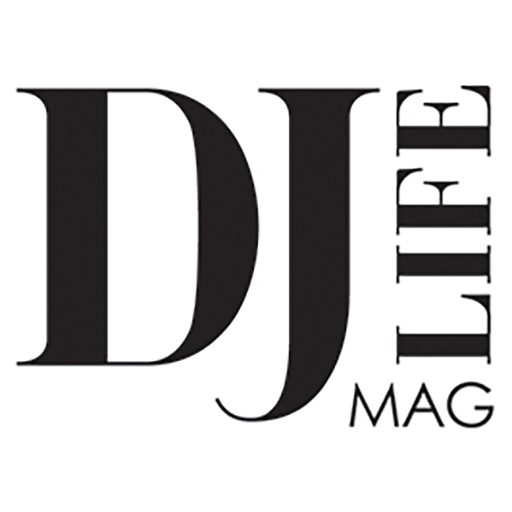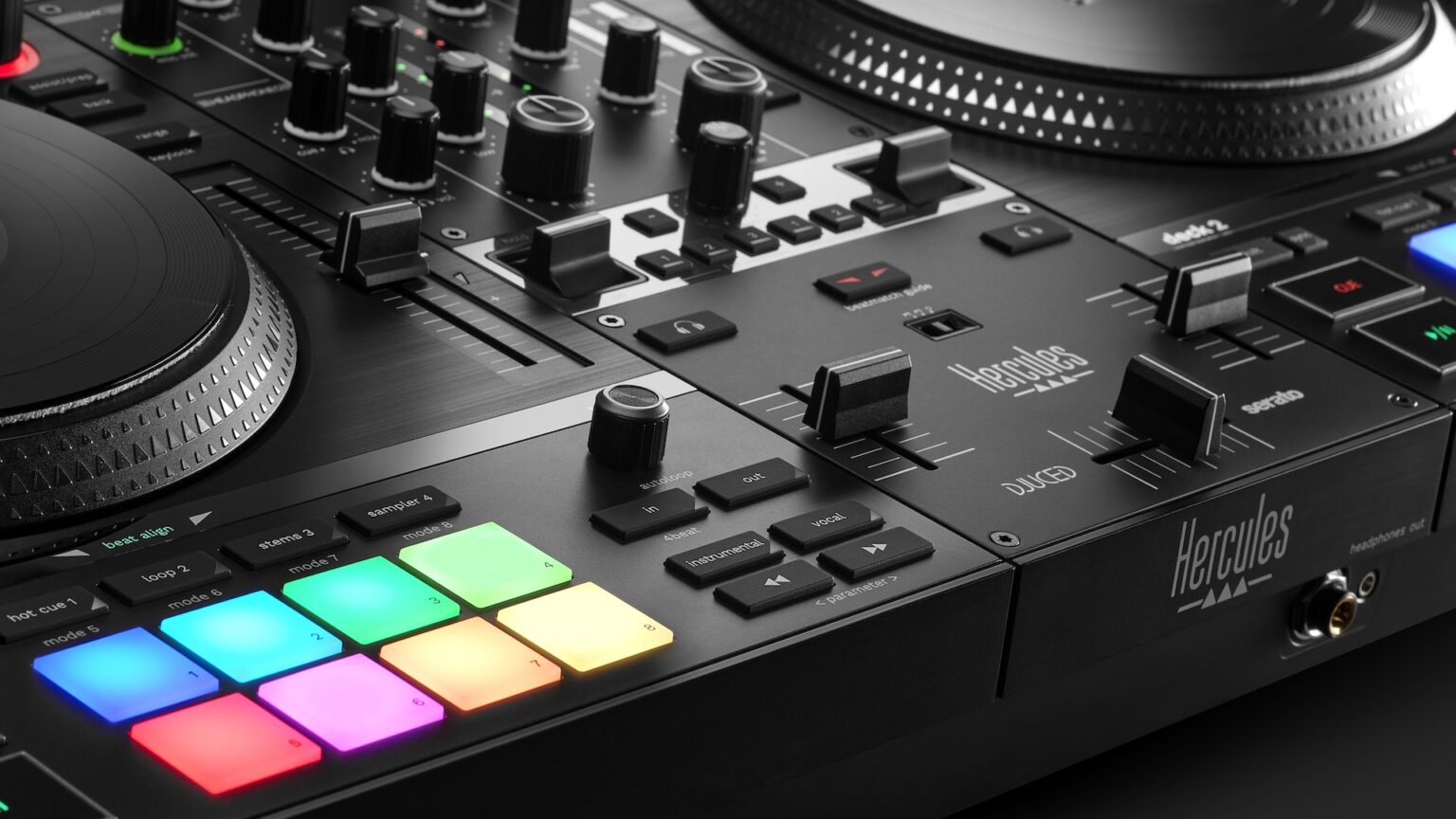With the Hercules DJControl Inpulse T7, it’s clear “the T7 is indeed Hercules branching out from its roots.”
Over the many years that I’ve been reviewing DJ and studio gear, there have always been certain, predictable constant; those things that just don’t change. And just like a DJ controller or mixer always has a crossfader, Hercules — the DJ brand name of France-based Guillemot — has always played in the entry-level segment of the market, having carved out a unique and apparently successful niche for itself.
So, when I first heard about the DJ Control Inpulse T7, I was a bit taken aback; did I read the specs right? Was Hercules branching out from targeting newbie DJs?
While perhaps not as shocking as a DJ mixer shipping without a crossfader, I wasn’t wrong; the T7 is indeed Hercules branching out from its roots. It’s not that the company hasn’t made perfectly serviceable controllers in the past; indeed, they have, and entry-level or not, I’ve tried and liked a fair number of them. But they’ve also had some offerings that seem to cross the line between novel, and just plain kitsch — products it’s been a little tough to take very seriously. And while I respect that they likely know their market better than I do, the T7 took a certain amount of courage to create; just a different type of courage than, say, a set of speakers with LED party lights built in.
The result, however, is as surprising in practice as it was in concept: a DJ controller with motorized jog wheels and full support in Serato DJ, targeted to the middle of the market. It’s a product I never expected from Hercules, targeting customers I never expected Hercules to go after. And spoiler alert: they’ve done a decent job of it.
The Basics
The DJControl Inpulse T7 is a straightforward two-deck DJ controller with a conventional layout. Larger than any previous Hercules controller I’ve seen — nearly 26-inches wide, and 14-inches deep — it’s also heavier, at roughly 11 pounds. In addition to its motorized jog wheels (more on that later), it sports everything I’d expect of a mid-tier controller, including pitch faders, gain faders, a crossfader (with a selectable curve, and that thankfully can also be disabled), the usual transport controls, eight multicolor backlit performance pads per deck, knobs for 3-band EQ on each side, and effects controls that include both a momentary and lock-in effects paddle switch for each deck. The T7 also sports LED segment-style level meters for each deck, and for the master.
Reflective of its market niche, the T7 offers dual-sized headphone jacks up front, a mic jack on the back, and dual master outs back there, too — not just RCAs, as I’m accustomed to seeing on Hercules controllers, but XLR connectors as well. With all the bits on top that you’d look for in serious DJ performance control, plus support for the microphone and XLR outputs, Hercules checks all the right boxes for a much broader audience than their typical offerings.
In terms of DJ software, the T7 supports both Hercules’ own DJUCED software, as well as Serato DJ Lite, echoing some of the company’s more recent controller offerings. While DJUCED started out a bit clunky in its very early years, Hercules has really honed and improved it over time, turning it into an appealing offering in its own right.
But I think where the T7 really shines is when it’s used with the full version of Serato DJ Pro. The combination of all the software’s advanced features (including real-time stems separation and use), and access to everything you need on the T7 itself, it’s all the tools — both hardware, and software — that the majority of DJs will ever want or need.
All About the Jog Wheels
What the DJControl Inpulse T7 is really all about, however, are the motorized jog wheels… or, if you prefer, motorized platters. And while that distinction may be a bit academic, I can see why Hercules itself refers to them as platters; but more on that in a moment.
Call them what you will, the T7’s pair of rotating control surfaces are designed to produce the authentic and unique control feel of turntables in a compact form. Hercules took particular care to engineer them just so, not just motorizing them, but putting speed strobe markings on the edges (which are purely cosmetic in the absence of a light to create the effect), a standard spindle in the middle, and supplying both felt slip mats and vinyl records to install atop both of them. They even turn at the standard 33-1/3 RPM (changeable to 45 RPM when using Serato DJ).
But are they jog wheels or platters? At first, I favored jog wheels since this is an integrated, all-in-one controller. But pop the small cover off the upper-left corner of one of them, and you’ll see the truth: a drive wheel and the very corner of a drive belt. Unbelievably, Hercules appears to have implemented a completely authentic belt drive system for what I now must fairly refer to as platters.
I suppose that I could make a case that motorized platters are more novelty than practicality, but I think it would be disingenuous. The truth is that motorized platters provide a very unique type of haptic feedback in use; and for specific styles of DJing (notably hip-hop and scratch), they’re practically essential, especially if a DJ cut his or her teeth on actual, old-school turntables. While that’s not my personal DJ background or style, I nevertheless found myself really enjoying the feel of the T7’s platters even for my particular DJ approach (one I learned being a digital DJ from the start).
In creating the T7, and based on the motorized platters alone, it seems Hercules has taken a page from the playbook of a couple of the biggest players in the DJ gear industry, which suggests to me that there are some big shoes to fill. So how does the T7 stand up to the big names?
Well, without spending weeks or months with the T7, it’s hard to predict how well the hardware is going to stand the test of time, or what it would be like to use the controller day-in, and day-out, in real-world performance environments. But in the many hours I’ve spent with my evaluation unit in my home studio, I’ve come away optimistic about its potential, and impressed with what Hercules has come up with as its entrée into a more-elevated area of the market.
The buttons on the T7 have clean, decisive action; knobs (such as for the EQ) are smooth; rotary encoders (as for the navigation controls) have perfect haptic feedback. My only quibble is that the sliders (faders, crossfaders, pitch) all have a bit more lateral “play” than I would ideally like; some additional rigidity there would add some confidence in the build. But beyond that minor nit, the T7 has a lot going for it, with all the essentials present and accounted for, along with some notable extras that make using it all the more enjoyable.
The Hercules DJControl Inpulse T7 comes in at a street price that’s just a penny under the $700 mark, making it the company’s boldest play yet to seize a bigger share of the DJ gear market. With authentic, motorized platters and offering the unique feel that comes from having them, the T7 is a joy to use. If someone had taped over the brand names on the T7 and introduced me to it “blind” in a controlled environment, then asked me to speculate on who made it, I don’t think that “Hercules” would have been the answer I’d have come up with.
And perhaps that’s what the company’s R&D team is going for with the T7: to redefine the very meaning of the brand, and to reset expectations in the market. If that is, in fact, what they’re trying to do, then with the DJControl Inpulse T7, it appears they’re off to a good start.


